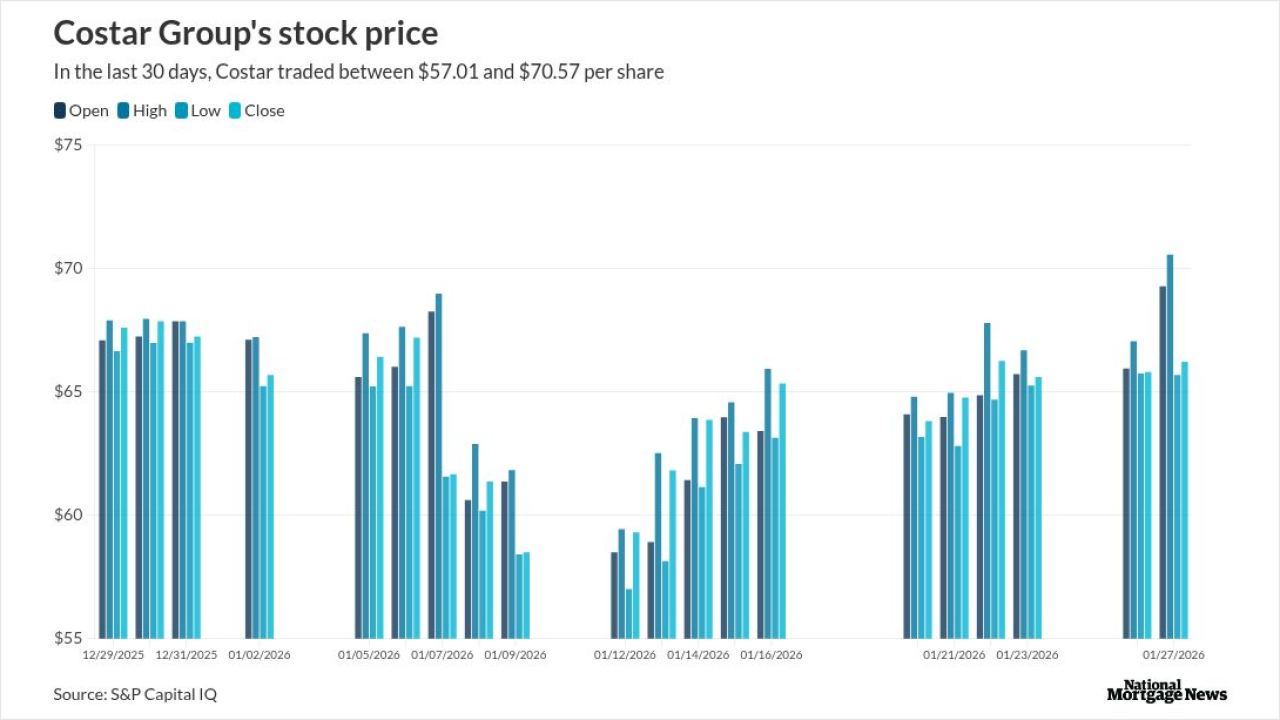Many senior homeowners polled for a Fannie Mae study said they will not tap their equity in order to support their retirement income, even though
Just 15% of respondents would consider using their home's equity for additional funds during retirement, while another 43% said maybe. But 41% declared they would absolutely not use their residence for income, Fannie Mae Chief Economist Doug Duncan wrote in a post on the study published this month.
The government-sponsored enterprise got responses from 1,141 homeowners aged 60 or older, with approximately two-thirds who were already retired in the survey. The majority of those still working planned to retire in the next five years.
An additional group of 307 economically disadvantaged older homeowners with lower incomes, retirement assets and savings were also surveyed.
Duncan previously hinted at the findings in a meeting with National Mortgage News in January, discussing a similar survey by Leaf Home and Morning Consult. That survey, along with
In the Fannie Mae study, 56% of the main sample said they would never sell, and an additional 27% are considering it. Only 17% have or definitely will sell their current property.
As to using their home as a source of income, the economically disadvantaged group had a similar split among the three responses.
"For both groups, the top reasons for not using their home's equity included: not needing extra funds during retirement; and not wanting to owe the bank anything and/or wanting to own their home free and clear," Duncan wrote.
Sixty-one percent of respondents disagreed or strongly disagreed with the statement "I don't mind having a mortgage payment during retirement." Another 23% neither agreed or disagreed.
When asked about specific financing product to generate additional cash or income if needed, one-third of the respondents claimed they would sell their home, followed by 31% that would take out a small amount of equity that would be repaid, 26% would obtain a home improvement loan, while 25% would get a home equity line of credit.
Just 20% said they were likely or very likely to do
When asked if they have or would like an easy way to tap their home equity, 35% of the economically disadvantaged respondents gave a positive reaction, 33% disagreed and 31% were neutral.
Even though the product has been in the market for several decades, many people still have misperceptions about how a reverse mortgage works, said Steve Irwin, the president of the National Reverse Mortgage Lenders Association. Furthermore, a reverse mortgage is not a tool for everybody to utilize, but in the right situation, it is a safe and effective product.
"What we do know is that there's over $12 trillion dollars in accumulated home equity for senior homeowners," Irwin said. "And that home equity is an absolutely critical resource and can be an integral part of any retirees' retirement funding strategy."
The vast majority of reverse mortgages are insured by the Federal Housing Administration, although
"It's important for people to understand that retirees can experience extremely volatile cash flows," Irwin said. "But leveraging home equity is going to continue to become a more and more critical component of retirement planning and financing because there could always be shocks to the streams of income that a person may have established through retirement accounts, or pensions, etc."




